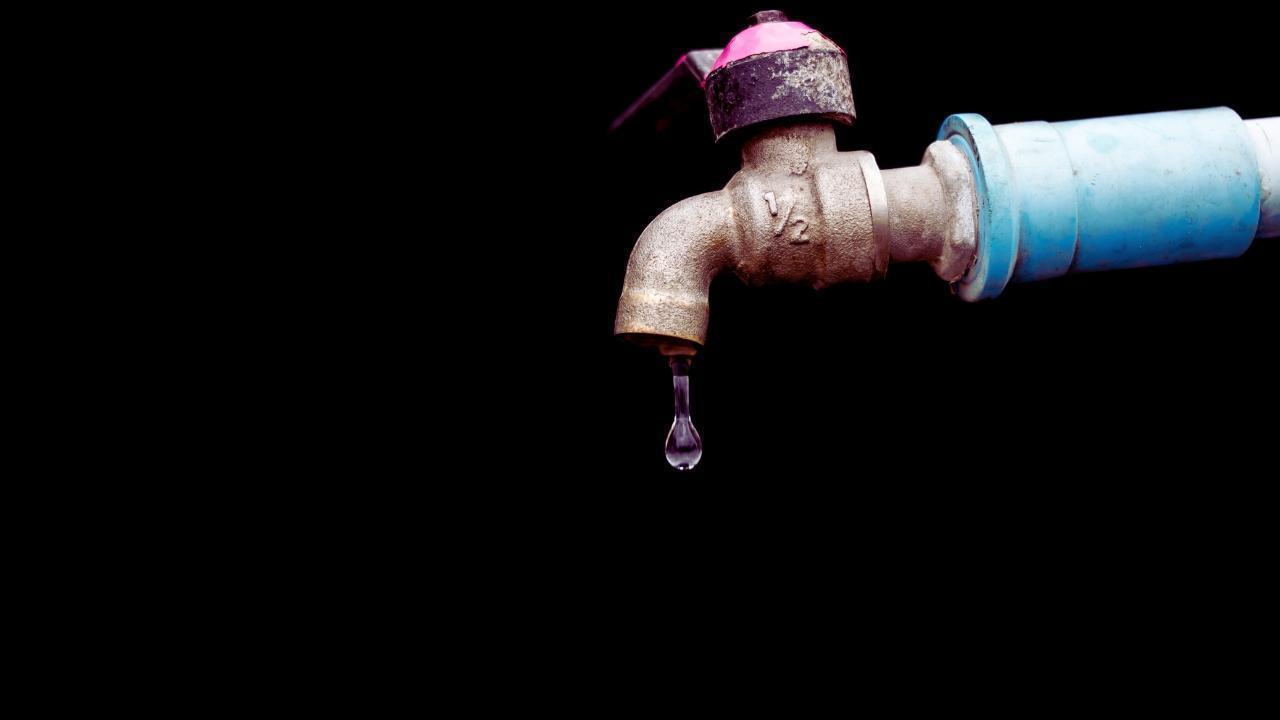You have not yet added any article to your bookmarks!

Join 10k+ people to get notified about new posts, news and tips.
Do not worry we don't spam!

Post by : Anis Farhan
In 2025, the world is running out of water—not because it has disappeared, but because it is mismanaged, commodified, and weaponized.
The global water crisis is no longer a hypothetical scenario for 2050. It is unfolding now—in the form of crop failures in India, rationing in Los Angeles, escalating disputes on the Nile, and corporate control of aquifers in Latin America.
What was once a local infrastructure issue is now a global security concern. Water has become the new oil—essential, scarce, and increasingly political.
As climate change accelerates droughts and floods, and as populations rise without parallel infrastructure investment, a simple question is emerging at every level of governance: Who controls the tap?
The numbers are stark:
4 billion people—half the world’s population—experience water scarcity at least one month per year.
By 2030, demand for freshwater is expected to exceed supply by 40%, according to the UN.
Over 700 million people could be displaced due to water stress by 2040.
But it’s not just about drinking water. Water feeds 90% of global agriculture, cools 80% of power plants, and is essential for manufacturing everything from semiconductors to textiles.
In a hyperconnected world, one city’s drought can become another’s inflation crisis.
Urban water stress is intensifying.
Cape Town, South Africa, narrowly avoided “Day Zero” in 2018. By 2025, it's again rationing household water to 25 liters/day.
Los Angeles, U.S., has enforced strict groundwater regulations as the Colorado River shrinks rapidly.
Chennai, India, has turned to desalination and private tankers as reservoirs hit record lows.
Mexico City is facing infrastructure collapse with leakage rates as high as 40%—despite regular flooding in monsoon months.
These cities reflect a growing trend: water abundance and water scarcity can exist side by side—due to poor management, population pressure, and outdated infrastructure.
The world’s 286 transboundary rivers are increasingly becoming flashpoints.
The Nile: Egypt, Sudan, and Ethiopia remain locked in a diplomatic standoff over the Grand Ethiopian Renaissance Dam.
The Indus: India and Pakistan’s fragile water-sharing treaty is strained by glacier loss and political tensions.
The Mekong: China’s upstream dam building is altering flow patterns, threatening agriculture in Cambodia and Vietnam.
Water diplomacy is often opaque, and treaties are outdated. In many regions, hydro-hegemony—where upstream nations dominate downstream users—is leading to geopolitical imbalance.
Climate change is compounding this: Himalayan glaciers feeding major Asian rivers are melting faster than predicted, adding unpredictability to already-tense water agreements.
While governments debate control, corporations are increasingly shaping water access.
Nestlé, Coca-Cola, and PepsiCo draw billions of liters from developing countries for bottled water production, often at ultra-low fees.
In Chile and Australia, water rights are traded on open markets like commodities—raising concerns about speculation and access.
Private equity firms are investing in water utilities and infrastructure, creating a profit-driven lens on what many argue should be a public good.
The most controversial milestone came in 2020, when the Chicago Mercantile Exchange launched the world’s first water futures market based on California’s water prices—formalizing the idea that water is now an asset class.
In response to scarcity, innovation is booming:
Desalination: Saudi Arabia, UAE, and Israel lead, but costs and environmental toll remain high.
Atmospheric Water Generators (AWGs): Pulling water from air is being trialed in arid regions, from India to Nevada.
Smart Irrigation: AI-based systems reduce water use in agriculture, which consumes 70% of freshwater globally.
Wastewater Recycling: Singapore’s NEWater model turns sewage into drinking water—now replicated globally.
But tech is no silver bullet. Access remains unequal. Rural areas, informal settlements, and displaced populations are rarely prioritized in funding or rollout.
Global efforts to manage water conflict remain fragmented. The UN Water Convention is under-adopted. Many countries lack updated national water laws. And water is absent from most international climate negotiations, despite its centrality to adaptation.
Some countries are taking independent action:
India launched “Har Ghar Jal,” aiming for piped water to every rural home by 2026.
Israel recycles 85% of its wastewater, leading global reuse rates.
South Africa is debating constitutional amendments to enshrine water as a non-commodifiable human right.
Still, without coordinated global frameworks, water is increasingly governed by corporate interests, military dominance, or legal loopholes.
At the heart of the crisis is a moral and legal conundrum: Should water be a right or a resource?
For many Indigenous communities, rivers and lakes are sacred. For activists, access to clean water is a human right recognized by the UN in 2010. Yet for corporations and investors, water is a scarce, monetizable asset.
This tension is defining the future of water governance.
As scarcity grows, conflict over control will intensify—not always through war, but through regulation, pricing, trade-offs, and infrastructure capture.
The “water wars” of the 21st century may not be fought with tanks—but with treaties, tech, and tariffs.
This article is for editorial and informational purposes only. It does not provide scientific, policy, or investment advice. All data and commentary reflect developments as of July 2025 and may change with future climate, political, or legal shifts.










Thai AirAsia Targets Growth Through China & Long-Haul Routes
Thai AirAsia aims 6-9% revenue growth in 2026 expanding domestic flights and new international route

India Ends Silent Observer Role Emerges Key Player in West Asia
From passive energy buyer to strategic partner India’s diplomacy in West Asia now commands trust inf

Indian Students Stuck In Iran Amid US-Iran Tensions And Exam Worries
Rising US-Iran tensions leave Indian students stranded, fearing missed exams could delay graduation

India Says J&K Budget Exceeds Pakistan’s IMF Bailout
India slammed Pakistan at UNHRC, stating J&K’s development budget exceeds Pakistan’s IMF bailout and

UP CM Holds Talks With Ex Japan Economy Minister in Tokyo
Yogi Adityanath met former Japan economy minister Nishimura Yasutoshi in Tokyo to boost UP-Japan coo

Hiroshima Teacher Arrested for Alleged Sexual Assault of Minor
A 37-year-old high school teacher in Hiroshima was arrested on suspicion of sexually assaulting a te